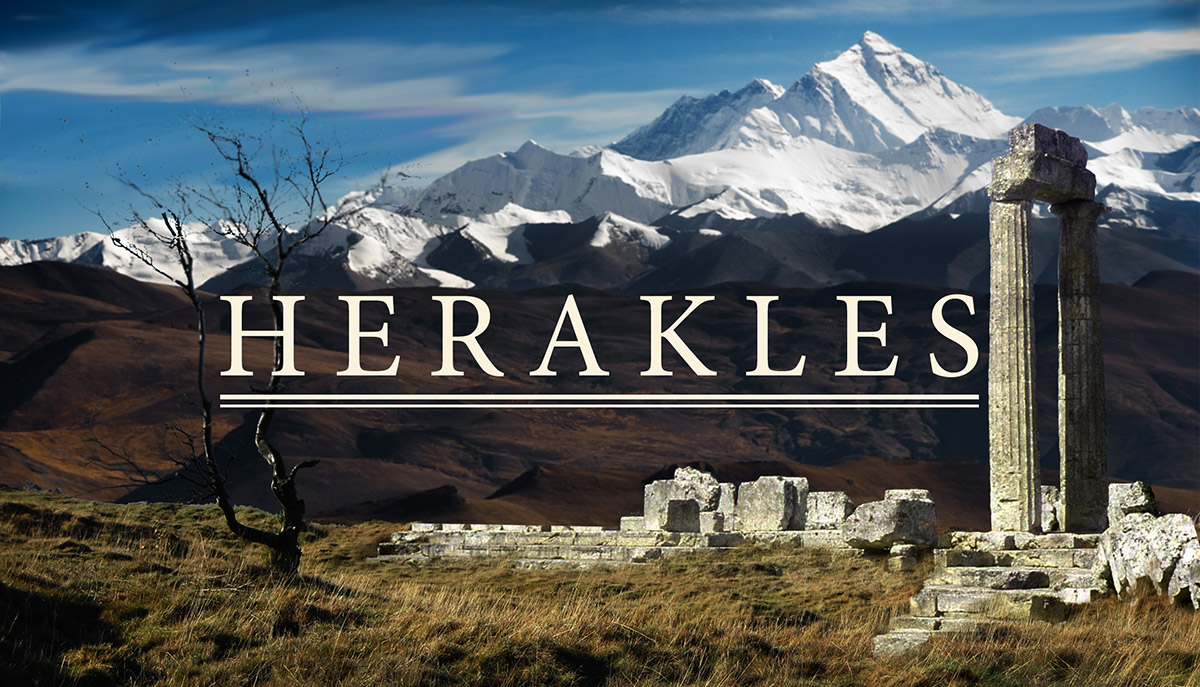Herakles
2017
This contemporary take on the form of a 19th century grand oratorio combined with the tradition of epic storytelling introduces us to Herakles in his childhood - long before he becomes the famous hero of the twelve labours...
Destined to be a ruler of mankind, Zeus sends his son Herakles with Hermes, as a test, to the distant mountain eyrie of the Titans Lady Royalty and Lady Tyranny, to discover which he will choose as the model for his own future rule.
The narrative is based on an ancient Greek tale of the young Herakles’ choice between Virtue and Vice, which was popular in Renaissance art, and set as a cantata by Bach. This version adds a twenty-first century twist, framing the choice as between two extremes which the
young Everyman Herakles rejects, to assert instead a mortal right to free self-determination.
The story is narrated by Time herself, and Herakles – still a boy at the time of this legend – is portrayed by a treble. They are joined by a cast of four soloists, for the roles of Zeus (bass), the mercurial Hermes (tenor), and the two terrifying Titans: Royalty (soprano) and Tyranny (mezzo-soprano), along with a large orchestra and SATB chorus, in a musical drama on a grand scale.

The text
The text for Herakles is based on Dio Chrysostom’s First Discourse on Kingship (c.100AD), a novel take on the "Choice of Herakles" theme, which usually portrays the hero facing a choice between Virtue and Vice. In Chrysostom’s version, the hero is as yet only a boy, and must decide what kind of king he will be when he eventually rules the world: whether to follow the path to "Royalty" or the path to "Tyranny". Unlike the more modern idea that the virtuous path must be the hard path, Chrysostom makes the path to Royalty broad and easy, and the path to Tyranny narrow and treacherous.
In our oratorio, my collaborators Anthony Peter (Madame X, Silent Jack) and Emma Stafford (Senior Lecturer in Classics at Leeds University and convener of the Hercules Project) and I have developed Chrysostom’s version of the "Choice" further. We portray it as a game or test set by Zeus for his son, with the "right answer" being, of course, to choose the autocratic
Royalty over the brutal Tyranny. However, our young Herakles (like Captain Kirk facing the unwinnable Kobayashi Maru test) turns the game on its head, and chooses neither unpalatable option. This leads to a climactic crisis facing Zeus and Olympus, and our finale.
Watch online
The first performance was filmed, and is available to watch online, in two parts:
Duration
90 minutes (in two equal-length parts)
Instrumentation
Soloists: Time (spoken), Herakles (treble), Lady Royalty (soprano), Lady Tyranny (mezzo-soprano), Hermes (tenor), Zeus (bass); Chorus (SATB); Orchestra: 3(1picc).2.2.3(contra) / 4hn,2tpt,4tbn,tba / 2perc, 1timp / harp / strings
First performance
Todmorden Choral Society and Todmorden Orchestra, Sunday 30th April 2017, at Todmorden Town Hall. Soloists: Rebecca Moon (Royalty), Elspeth Marrow (Tyranny), Jean-Pascal Heynemand (Hermes), James Fisher (Zeus), Zachary Smith (Herakles), Claire Benedict (Time); Conductor: Antony Brannick
Request a score / parts
If you would like to see a score and/or require a set of parts for this music, please contact me.